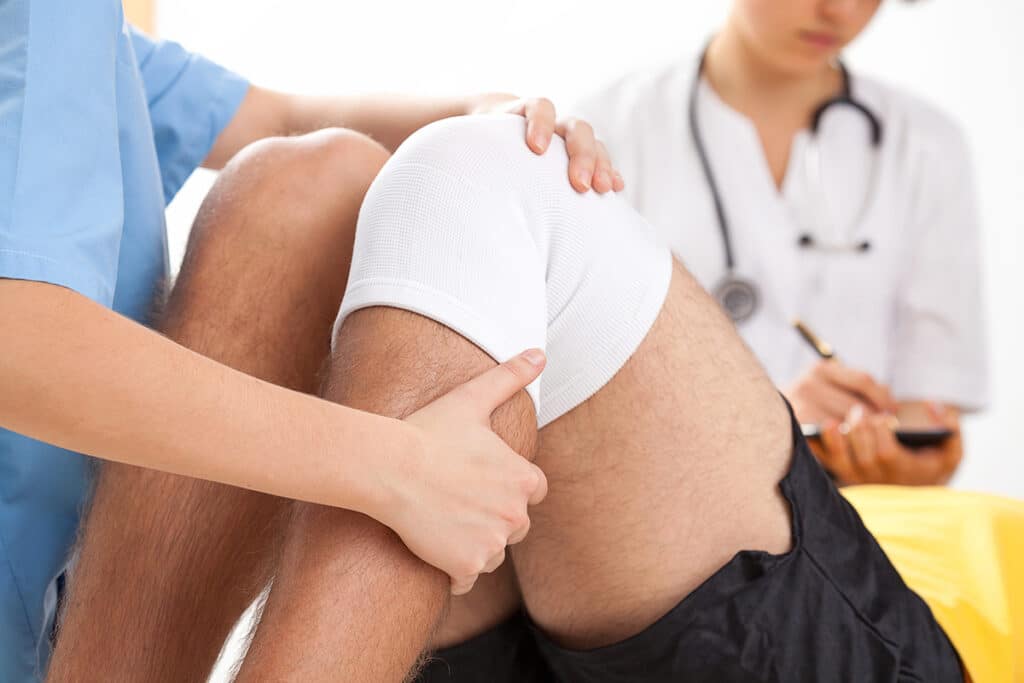
What a patient does after surgery is almost as crucial as the operation itself. The procedure lasts a few hours, but the rehabilitation takes months. High-quality postoperative physical therapy is crucial for restoring mobility and strength. Therapy only works when done correctly. Improper healing could make the area worse and lead to complications. When referring to post-op PT, providers want to know that their patients are getting the best care possible.
Why is physical therapy important after surgery?
Improper exercises put increased strain on the joint. The healing process slows, and range of motion can diminish over time. Those who don’t engage properly in post-op rehab may see atrophy of supporting muscles and soft tissue.
The Importance of Personalized Support
Physical therapy improves overall health following an operation. Personalized support means proper healing and faster recovery times. Patients who actively participate in their rehabilitation process have better outcomes than those who don’t. A good PT teaches patients the best recovery methods and helps them maintain wellness over time.
Consistency is key. When patients see the same PT every time, their progress is monitored and tracked by a single provider. The therapist and patient get to know each other and develop a therapeutic relationship. Each learns to trust that the other is working hard to contribute to the treatment’s success. Over time, patients will return to their daily lives better than before.
Evidence-based Best Practices
High caliber PTs integrate the best available evidence, clinical expertise and patient values into post-op care. Clinicians who provide the best care for patients will take the time to find and apply the latest research. Moreover, knowledge and skill are a key aspect of evidence-based practice.
Each PT has a unique body of knowledge. A clinician’s education, training, and competency all factor into their quality of care. Taking the patient’s needs and wants into account is an important part of care following surgery. A skilled PT will consider the person’s values, culture, and needs when developing a comprehensive treatment plan.
Common Types of Surgery Requiring Postoperative Physical Therapy
Any type of surgery can be traumatic for the mind and body. So, patients need excellent post-op care especially following joint replacements. Common types of surgery that require physical therapy include:
- Total Knee Arthroplasty
- Total Hip Arthroplasty
- Shoulder Labral repair
- Spinal Laminectomy and/or Fusion
- Rotator Cuff Repair
- Meniscus Repair
- Knee Arthroscopy for various problems
Total Shoulder
Replacement
Benefits of High-Quality Postoperative Physical Therapy
A carefully supervised rehabilitation plan is crucial. Therapy helps patients reduce pain quickly and avoid relying on opioids. It also improves emotional and psychological states. Exercise releases endorphins that improve mood. Plus, having the support and encouragement of a PT means patients don’t feel like they are recovering alone. Other significant benefits include:
- Improved circulation and reduction in swelling
- Reduced risk of postoperative pulmonary complication
- Faster recovery time and return to prior level of function
- Balance and coordination training
- Gait analysis and instruction in proper mechanics
- Manual therapy
- Self-care education
- Home exercise instruction
The COR Difference
At Churchill Orthopedic Rehabilitation, we create treatment plans specific to each patient. Our trained PTs have in-depth knowledge of the different types of orthopedic surgery. In addition, we understand the importance of continuity of care. At COR, patients see the same PT every time they come in. If your patients need high-quality postoperative physical therapy, call our office at 201-833-1333.
